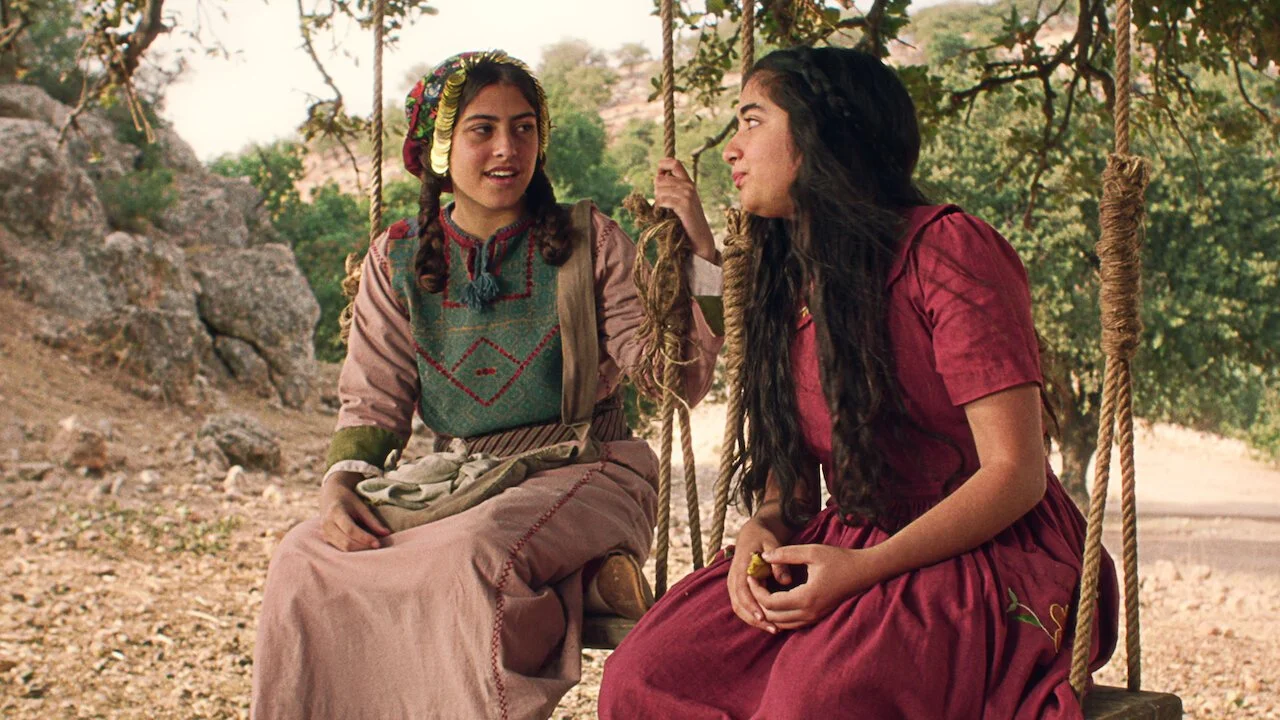Palestinian you should know: Nehad Khader
The following was originally published in the Palestine in America Film Edition. Please support our work by ordering a print copy, downloading a digital edition or becoming a subscriber.
Nehad Khader, director and managing editor of Blackstar Film Festival, decided to pursue her dream more than a decade ago when she was invited to curate the DC Palestinian FIlm Fest in 2010.
Palestine in America (PiA): Where is/are your parent(s) from in Palestine?
Nehad Khader (NK): My father's parents are from the village of Umm al-Zinat, located southeast of Haifa on the Karmel mountain. My maternal grandmother is from the city of Haifa, from the Halisa neighborhood, and my maternal grandfather was born and raised in Haifa, also in Halisa, but his parents are from Umm al-Zinat.
PiA: What’s your earliest memory of a movie or show that resonated with you?
NK: My earliest memories of movies are the Egyptian cinema classics that I used to watch with my grandmother. That's probably where my love of cinema started. If I dig deeply enough in my psyche, maybe cinema reminds me of her, but she also loved watching the World Wrestling Federation, and I can't say I have a love for WWF. As a child, my favorite films were Faten Hamama's 1970s works that revolved around a strong female character and depicted different classes of women navigating tough social issues — Embratoriyyat Meem, Uridu Hallan, Afwah wi Aranib. But I think ultimately, the work that resonated with me most was the 2004 Syrian mini-series al-Taghreebah al-Falastiniyyah, which revolves around different members of one Palestinian family from the 1930s through the 1960s. I watched the full series with my grandparents, who had a lot of annotations to add to the show, and that helped spark lots of conversations about their experiences that went on until they both transitioned.
PiA: When did you decide you were going to pursue your dream of being in the arts?
NK: In 2008 I won the Leeway Art & Change Grant to do research and produce a project on Philadelphia-based Palestinian women's tatreez. It culminated in an exhibit at the Philadelphia Folklore Project that brought together all kinds of artists in Philadelphia, and Philadelphia is one of my favorite things in the world. That experience validated that I could immerse myself in the arts no matter what I did professionally. But I don't think I considered pursuing the arts as a career until I was invited by some wonderful friends to curate a film festival they founded in 2010 — the DC Palestinian Film & Arts Festival. I learned that film curation is an art, and that you can build community and start conversation by doing it. It's a cerebral practice, but it's also practical, and it can be joyful too. Today I'm blessed and lucky to be the director of BlackStar Film Festival, a project I believe in wholeheartedly, that I enjoy, and also one that treats its employees with great respect and always tries to build a better internal and external culture. Talk about pursuing your dream — my dream is a reality!
PiA: Is there an experience you’ve endured that highlights the Palestinian experience in the film industry?
NK: At BlackStar, I've had the great privilege of working alongside Black, Indigenous, and Brown independent filmmakers in the industry, with artists, curators, and audiences who have solid politics. BlackStar's motto is "By Indie Means Necessary." Therefore, I've had really positive experiences as a Palestinian in the film industry, which I appreciate can be rare. In my professional circles, there is care and value in the nuances of the different experiences of people of the global South, writ large, and folks are excited to engage with Palestinian stories and cinema. I have many examples of validating experiences, and one that comes top of mind is seeing the post-BlackStar life of a film we screened about hurricane Maria in Puerto Rico draw political and communal connections between the Caribbean Island and Palestine in its screening tour after our festival, framed in discussions about the film — a move that was spearheaded by the film's director herself.




